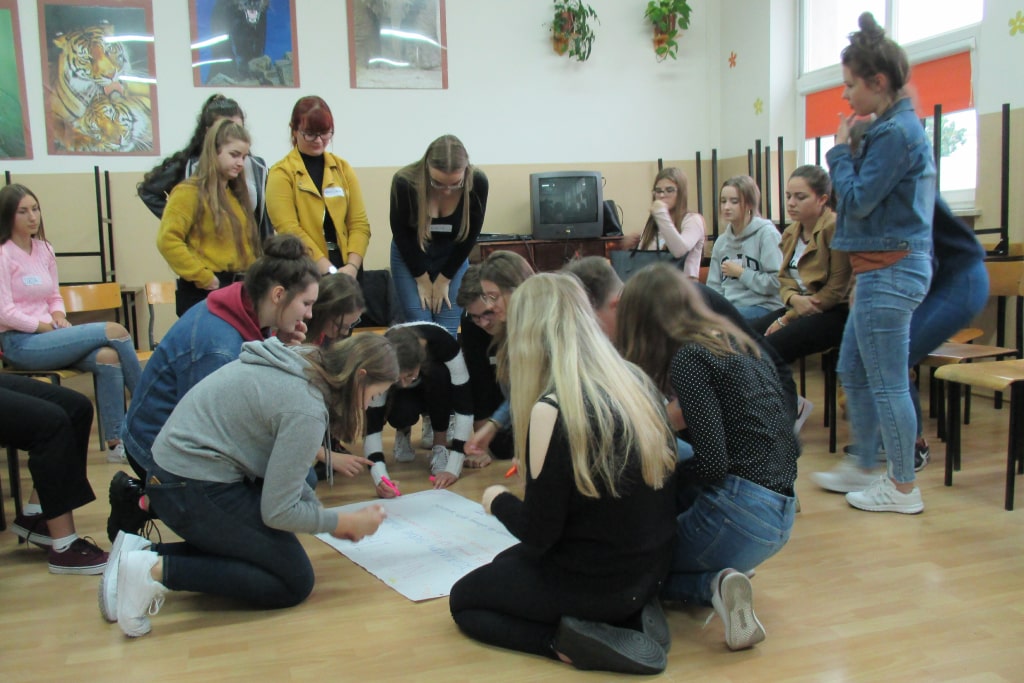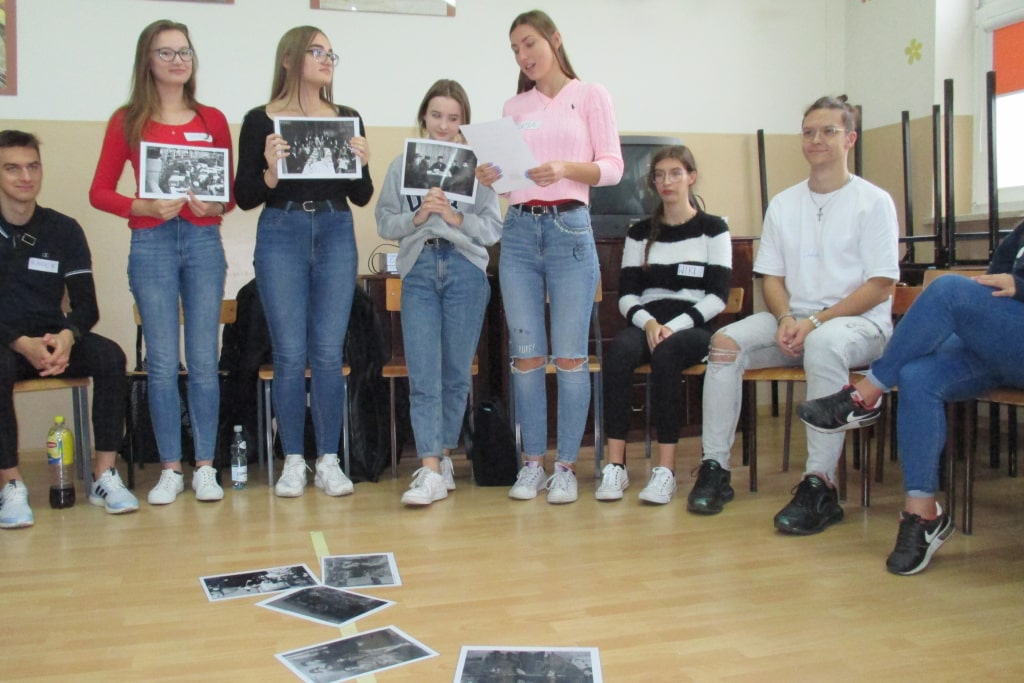| 2019 |
Ostrołęka
Cyprian Kamil Norwid High School No. 2


| 2019 |
School of Dialogue in Ostrołęka was held upon request of a local high school teacher, who specializes in Jewish history of the region. Already at the outset of the project, his students knew a lot about Judaism and the local Jewish community, which accounted for 80% of local population before World War II. Jan Mironczuk’s monograph ‘Żydzi w powiecie ostrołęckim do I wojny światowej’ [Jews in Ostrołęka Country Before World War I] much of the student-sought information. During a walk through Jewish Ostrołęka, students showed their guests the residential area that up until mid-nineteenth century had been the only neighborhood not off-limits to Jewish residents, as well as the market square and the site of the demolished synagogue.
The local cemetery had been destroyed by Germans during World War II, after they had banished local Jews to Russian-occupied Łomża. After the war, the cemetery area had been built over. Today, a monument commemorating local Jews marks the site’s past. In line with the Jewish tradition, tour participants placed stones under the monument. The tour was attended by fellow highschoolers as well as students from Usolye-Sibirskoye, who visited Poland to see the land of their Polish ancestors. The tour showed them that this land had once been multicultural.


School: Cyprian Kamil Norwid High School No. 2
Students: 2nd year
Teacher: Jan Mironczuk
Educators: Małgorzata Kruszewska, Magdalena Ogieniewska-Małecka
Project cofinanced thanks to the generosity of Friends of the Forum, Conference on Jewish Material Claims Against Germany and individual donors and institutions from Poland and abroad supporting Forum for Dialogue.
In appreciation to the Conference on Jewish Material Claims Against Germany (Claims Conference) for supporting the School of Dialogue educational program. Through recovering the assets of the victims of the Holocaust, the Claims Conference enables organizations around the world to provide education about the Shoah and to preserve the memory of those who perished.